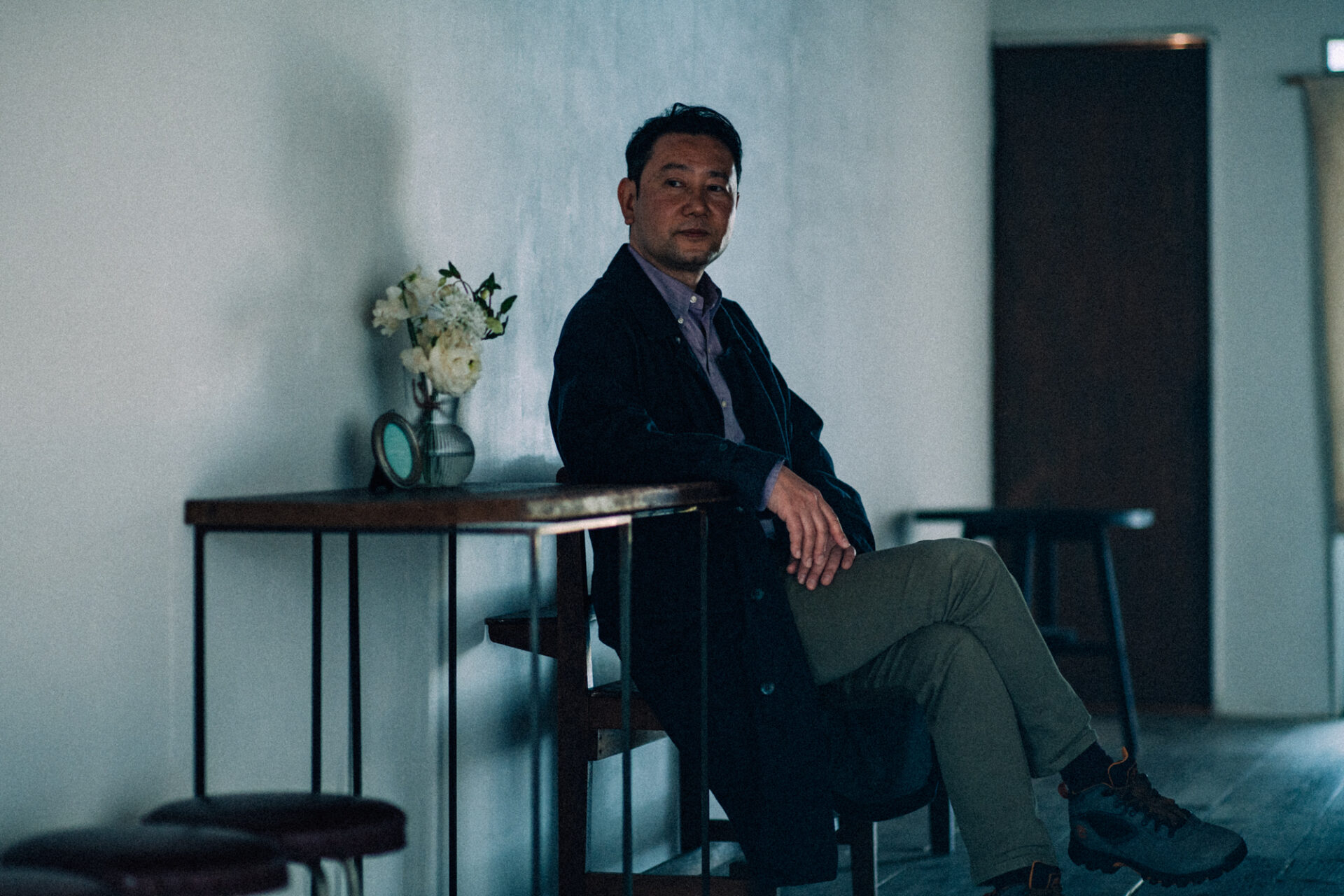How and where do you like to enjoy your coffee?
Is it the cup of black coffee when you first get up in the morning? A cup accompanied with a piece of cake or a pastry as an afternoon treat? Or is it a cup of café au lait with plenty of milk in the evening to take a moment to relax?
What is considered the “norm” for how we enjoy coffee is in fact very different depending on the country and region you are in.
In Ethiopia, located in East Africa and where coffee is said to have originated, it is customary to invite neighbors whenever one brews coffee and enjoy the drink together with other people. In this custom, there are no barriers between ethnicity, religion or language.
What role does coffee play in the lives of the people who live in the region of which it originated? We will explore their coffee culture and how customs surrounding coffee have changed as it traveled from Ethiopia to Japan. To learn more, we spoke with Keiichiro Matsumura, a cultural anthropologist and associate professor at Okayama University, who has done fieldwork in Ethiopia for over 20 years.
Securing their own supply before exporting
── It is said that coffee originated in Ethiopia. Coffee has been a big part of Ethiopian history and I heard that drinking coffee is widely common in the country.
There are still some unknowns about the origin of coffee, but there are large trees in the forests of southwestern Ethiopia that are believed to be where the original coffee trees came from. Today, the coffee beans cultivated on farmlands grow to be about 1.5 to 2 meters in height and they produce red berries. These berries hold what becomes the coffee beans. The brown coffee beans that we are all familiar with are the seeds of these berries that have been roasted.

It is said that Ethiopians used to fry wild coffee berries with butter and eat them, as well as use the berries for ceremonial purposes. Coffee beans were introduced to the Arab world in the 15th century through Yemen and it is said that the custom of consuming coffee as a drink began there.
In other words, the act of consuming coffee as a drink was something that was introduced to Ethiopia from other cultures. In Arabic, coffee is called “Qahwa” and it is said this word is the origin of the word “coffee.”
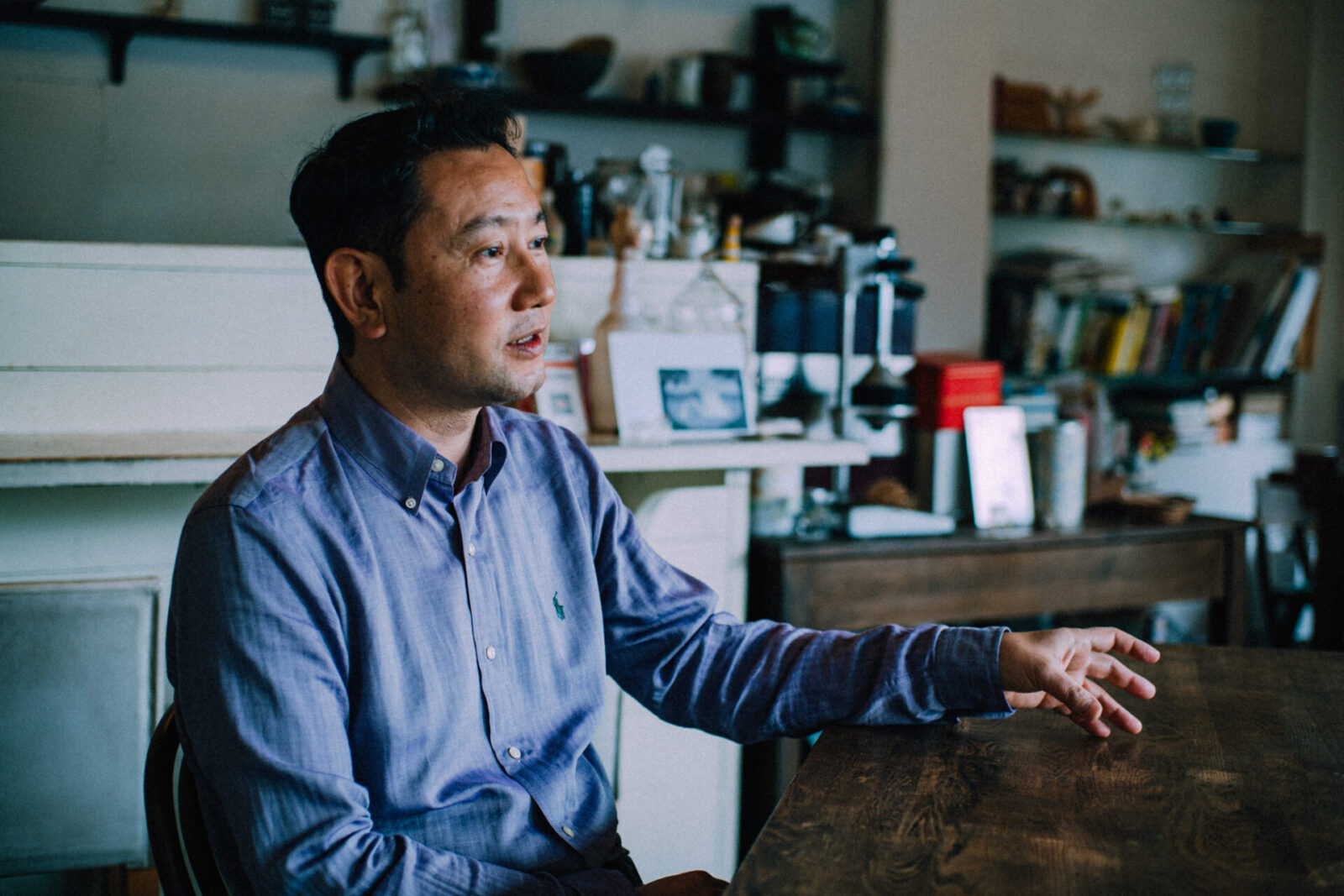
As the history of coffee developed in Muslim cultures, the custom of drinking coffee eventually spread to Christian cultures, including Ethiopia. In some regions, there are customs of drinking the coffee leaves or husks of the berries like tea rather than using the beans.
When the customs of drinking coffee spread to European countries, there was a widespread increase in coffee plantations in colonized countries. There are many other coffee producing countries in Africa besides Ethiopia, including Kenya and Rwanda. However, most of the coffee that is produced in those countries are exported and the farmers who grow the coffee do not drink it themselves.
Ethiopian farmers, on the other hand, secure their own coffee beans for drinking before selling the beans for export. It should be noted that Ethiopia was not colonized during the imperialist era and has maintained independence, with the exception of five years from 1936 when it was temporarily colonized by Italy.
A ceremony transcending ethnicity, religion and language
── In Ethiopia, coffee is produced not only for export, but a lot of it is consumed domestically. Coffee must play an important role in their society.
In the farming villages where I do my research, the local people always call out to their neighbors to join them whenever they make coffee. This custom has recently been named the “coffee ceremony.” Generally, it happens everyday and there are about three coffee ceremonies each day. The residents of the village all invite each other.
One house hosts the coffee ceremony at about 10 a.m., a different house holds another one in the afternoon, and then another house in the evening. From peeling the shells off the coffee beans to washing, roasting and grinding them, they take about one to one and half hours to prepare the coffee. They even clean their floors, decorate their room with flowers and burn incense.
While they are making these preparations, they begin calling out to their neighbors and people gradually start to gather. As they engage in small talk, they enjoy two to three cups of coffee in small cups. This kind of gathering happens several times each day and it is a daily part of the Ethiopian farmer’s life.
The interesting thing is that everyone is invited, regardless of their ethnicity or religion. Both Christians and Muslims share a space to interact over a cup of coffee. It is in these spaces that people build their relationships with their neighbors.

── So coffee becomes the mediator for building community relationships. In Japan, we also invite people over for tea to talk about our lives or engage in small talk.
If we approach someone and say, “I have something I want to talk about” or “Can we talk right now?” it can be a little daunting. However, saying “Let’s take a break” or “How about some tea?” is somehow much more inviting.
── Perhaps in Japan and Ethiopia, sharing a drink as a mediator helps people communicate better.
The situation is a little different when it comes to food or sharing a meal. For example, Muslims and Christians will not eat meat that is served on the same plate. This is because Christians and Muslims have different methods and prayers involved when butchering the meat.
However, drinks and coffee can be shared and enjoyed without worry. On Christian holidays, the Muslim neighbors will come over to congratuate them and drink coffee because they cannot drink alcohol. People of different ethnicities, cultures and languages are able to come together and drink the same coffee. Coffee helps to transcend the barriers of ethnicity, religion, and language.
In the villages that produce coffee in Ethiopia, there are many different people from different regions who come to work and live. Ethiopia has a very multi-ethnic population and they share many common spaces. I think that this coffee ceremony tradition was founded upon the need to build human relations in such a diverse environment.
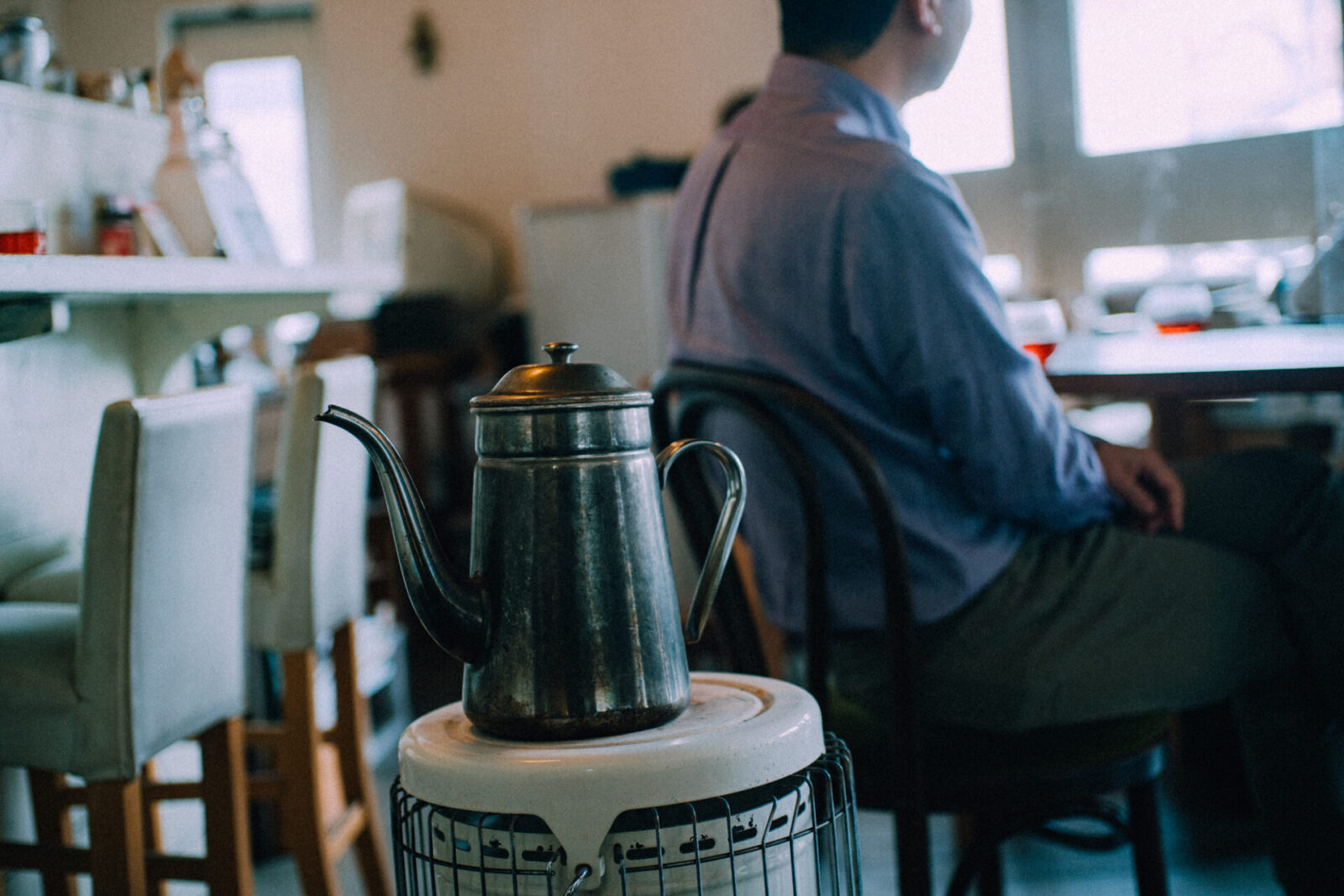
All are invited regardless of money
ーー Being neighbors is the only commonality that is necessary to participate in the coffee ceremony. Is there a sense of comradery and mutual help involved?
There are many families who are very poor in these villages and they cannot often be the host. However, it is not required that everyone hosts on equal levels. The people in the village know that some houses do not have very much coffee. Nonetheless, these poor families are invited to the coffee ceremonies.
The host provides a light snack during the coffee ceremonies. Rather than sweets, they usually serve Ethiopia’s staple dish, injera, which is a kind of flatbread. Eating this bread with some coffee alone can satisfy one’s stomach to a certain degree. For some of the really poor families, having coffee and injera at their neighbor’s house may be the only way they will satisfy their hunger that day.
ーー It is as if the ceremony acts as a certain lifeline for the villagers.
The villagers are very aware of each other’s economical situations. So rather than obviously giving something to help their neighbors, they may casually invite them over for breakfast. In this way, they interact in small talk and get a good understanding of each other’s personal circumstances.

Of course, there are times when conflicts or problems occur in the village. In these situations, the villagers may avoid inviting that person or going to that person’s home. During the coffee ceremonies you may hear gossip of how other houses are fighting with each other and what happened between them.
It is not the case that everyone in the village gets along all the time. Conflicts are common. The interesting thing is that because the personal information of who is fighting and why they are fighting becomes the topic of conversation at coffee ceremonies, they come out into the open and become a public issue. The villagers all share the information on the problems happening in the community and so everyone becomes involved in some way.
“It is not good to be alone”
ーー Don’t the villagers ever tire of drinking coffee with their neighbors everyday?
I think about that a lot myself (laughs). However, I think this idea comes to mind because we were raised in modern Japan.
The people of Ethiopia often say that it is not good to be alone. I sometimes wish to be alone and read a book in solitude, but if I stay cooped up in my room, someone will come and tell me to come into the shared space and read where others are around.
When you are in a shared space, you have no choice but to engage in conversation. You cannot quietly read a book in solitude. In fact, the people who are not fond of socializing in the village tend to get bad rumors spread about them. The villagers wonder why one would want to stay cooped up inside their home. They speculate that someone may have cursed them. Nowadays, more and more households have a TV in their home, but talking and socializing with others is one form of entertainment.

── I can’t help but think that if we talked to the same people everyday, we would run out of things to talk about.
In the village community there is often a “skilled storyteller” who tells the same story over and over. In Japan, Kunio Yanagita wrote a book titled “The Unhappy Art of Humor.” In the book he talks about how it is important that people are able to laugh at lies, even lies that are exaggerations or bluffs.
If you think about it, village communities in Japan in the past were probably much the same, where people gathered on a daily basis to talk, laugh and share their joys. These villages in Ethiopia remind me that such connections existed in the past.
Khat, a popular “shikohin” and ritual plant
──── What other kinds of “shikohin” are there in Ethiopia besides coffee?
Ethiopia also has tea and tobacco, but their most important plant is called “khat.” It is an East African shikohin which is also popular in Yemen and in Kenya it is known as “miraa.” Most of the production is done in Ethiopia.
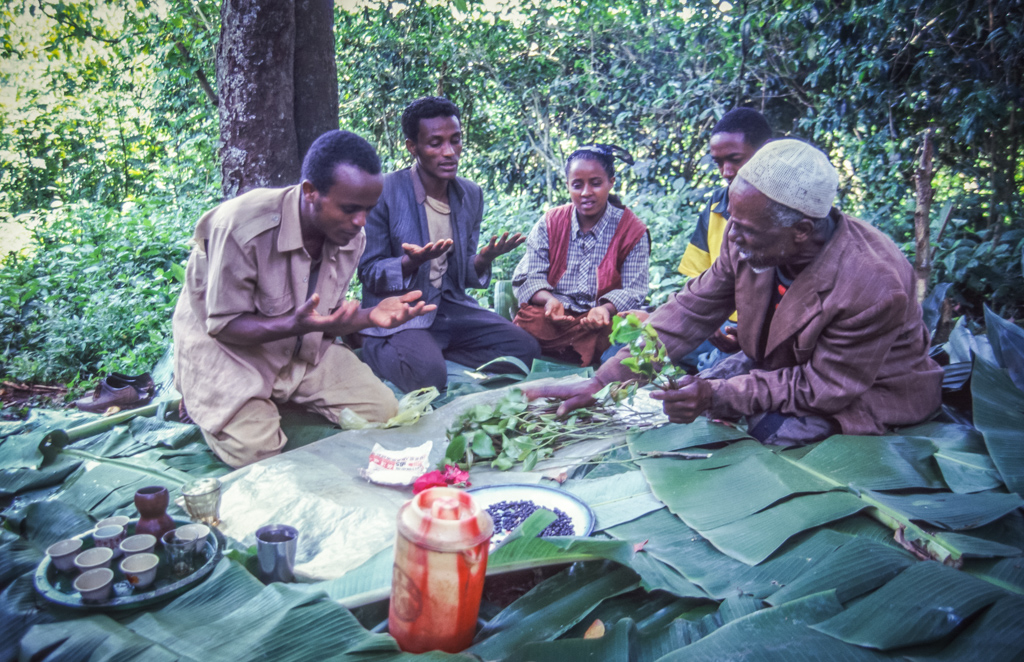
The regions where khat are grown are the same as coffee. Often when men get together, someone brings a handful of khat with them and they offer a prayer before chewing it together. The khat leaves are not swallowed, but chewing them with the back teeth of your mouth excretes a stimulant that has an uplifting and clarifying effect. When the people are working in the farms, they chew khat to give them more energy. Khat is also important in rituals and it is always offered as a gift to the other family when a couple gets married.

When everybody comes together and brings khat, usually it is all handed over to the oldest person in the group.That person offers a prayer and redistributes the khat among the group. The Muslims always offer a prayer to Allah and the saints before sharing coffee or khat.
It is the sharing of something that has been blessed by God. I think this custom is also based on the values that good things and enjoyment should be shared and not kept to oneself.
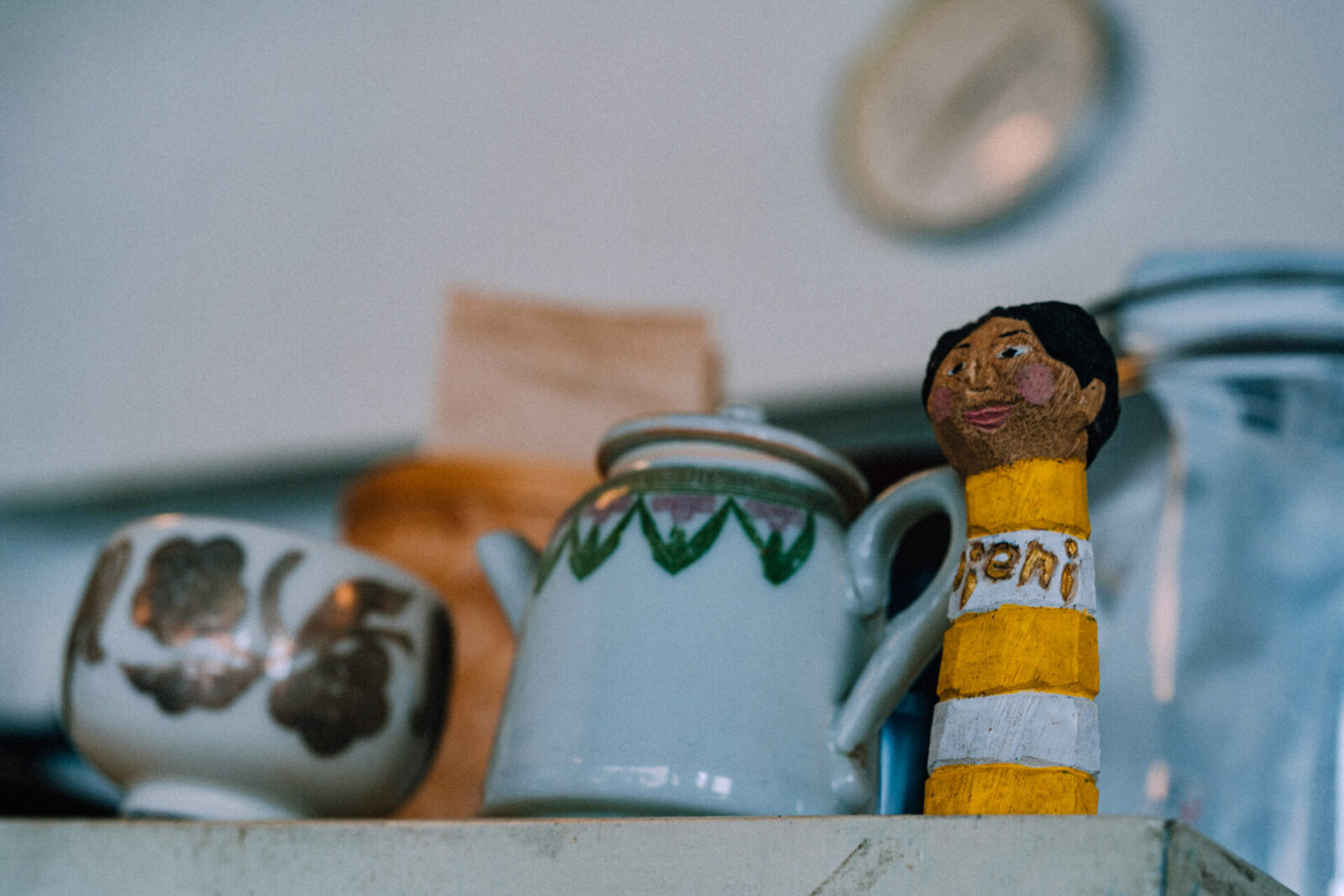
Social norms based on shared enjoyment
── Why do you think sharing is at the basis of the social norms in Ethiopia?
I think it is because they recognize that even strangers are an individual human being. In Ethiopia, it is not just coffee that they share. If they are eating a meal and somebody walks by, they will invite that person to join them.
I think that they all have this idea that everyone may be hungry and it would be shameful not to share food with someone who is hungry. Perhaps it was because I was a foreigner, but when I was in the capital of Ethiopia, Addis Ababa, I was often invited to join in meals in such a way. Sometimes they would even buy me a beer at a bar.
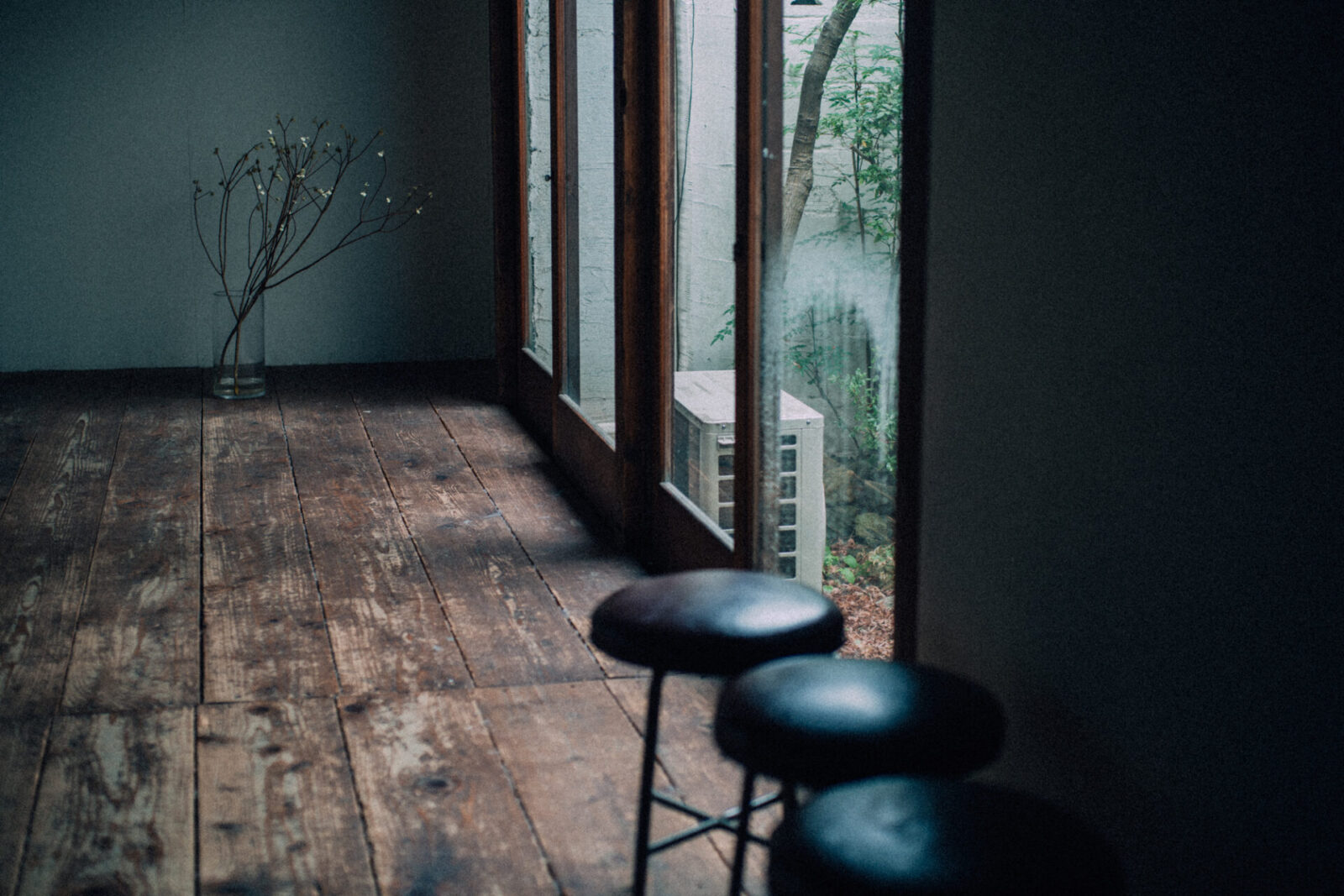
In Japan, it is not common for people to call out to strangers and invite them to join their meal. For example, if you were enjoying a delicious ice cream at a cafe and you saw people walking by on the street, you would not think, “Maybe that person would want to eat some ice cream” or invite them over to come and join you.
─── That’s true. Perhaps it is not common in Japan to feel guilty about enjoying something on your own.
The same is true for coffee ceremonies. The people of Ethiopia feel that it is unforgivable to enjoy coffee alone or just within your home. After all, when you brew coffee the smell of roasting the beans and the smoke from boiling the water exposes the fact that you are making coffee to your neighbors right away.
If you do not invite them to join and enjoy it just within your home, the whole village may begin to think negatively of you. Everyone has the shared understanding that monopolizing an enjoyment is something to be ashamed of.
Of course, there are some people who deviate from these social norms and the more urbanized a place becomes, these customs also change. However, the idea that enjoyment is something that comes from being with people and sharing is an idea that is at the core of the Ethiopian people’s values.
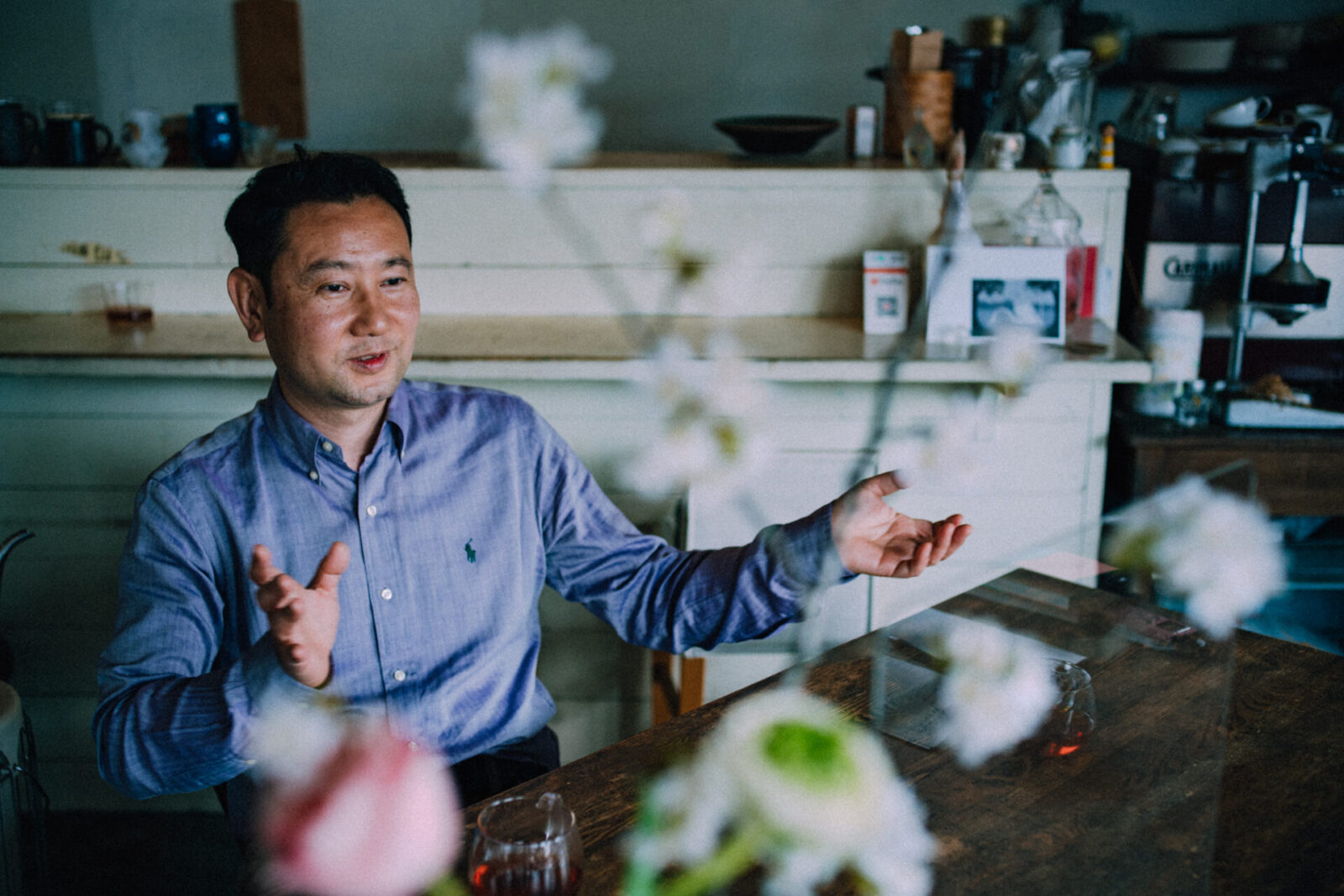
I imagine that Japan used to be that way in the past as well. However, if that is no longer true today, we have to question why that is. It may be because what we consider the “norm” or “absolute” in our society has gradually changed.
I am by no means implying that the Ethiopian way is correct or the Japanese are wrong. We are all human and we have similarities and differences. I believe that as our way of life changed, we seeked out a different set of values as the ones we had in the past and it is important to look into that.
── Do you think that there is some aspect of fear of being envied and disliked by other people that is behind this culture in Ethiopia?
I do think there are some aspects where people believe that if they do not share their coffee ceremony, it will draw envy and disdain and that will cause misfortune to fall onto them. Such ideas were common in Japan in the past as well, but it became irrelevant and people stopped worrying about what other people thought. Our idea now is that “freedom” is being able to use our time freely for ourselves and live in a world that is disconnected from others.
Being disconnected from other people can be comfortable and freeing. However, when you look at social media, you can see that there is a strong desire to be seen and approved by others and to show people that we exist in this world and being alone is lonesome. We thought we were enjoying the freedom of being alone and cut our ties with others with our own hands. However, we all have these contradictory feelings of wanting to be seen by others and the desire to share our joys with them.

Changes in Japanese society through the lens of “gift-giving” culture
── There is a sense of loneliness that comes from the freedom of being alone in our modern society.
Until recently, it was customary in Japanese society to bring back souvenirs and gifts to everyone you knew when you took a trip somewhere. In a fishing village in Shimane Prefecture that I once researched, they had a rule among the women’s association to not give out souvenirs from their travels. However, this rule was broken so often that it was eventually abolished.
If you look deeper into this rule, you see that most of the people in the village knew each other in some way or another so bringing back gifts was a big burden. Japan’s custom of gift giving is also a way to avoid becoming the target of envy or disdain. The guilt people feel about monopolizing an enjoyment still exists in Japanese society today. Besides, not having anyone to share souvenirs or gifts from your travels with after you return is quite a lonely situation if you think about it.

── In other words, it is a situation where you don’t have anyone around you that recognizes you as an individual “human.”
It is somewhat of a hassle to think about presents or buying souvenirs. You need to think about the other person’s tastes and it can’t be overly expensive or it will make them feel uncomfortable. So it can be very difficult.
This is the reason why “catalog gifts,” which lets the giver set the price and the receiver choose what they want, were introduced in Japan. However, there were cases in Okinawa where catalog gifts were used in place of a return gift for a wedding, and all of the attendees were too reluctant to choose anything so they ended up with no gift at all.
In some regions in Japan there is still a very strong gift giving culture. When a child reaches adulthood, the family will invite everyone in the village to their home for a feast. In regions where such customs are still common, the practice of using catalog gifts may not work so well.
In that sense, Japanese society as a whole cannot be homogeneously compared to Ethiopia. I think that perhaps it is possible for one to live in solitude if they are living in a city. On the other hand, we all have a desire in our nature to be recognized as a member of society, to have other people care about us and to share our joys with.
I don’t know what the world will be like 100 years from now, but I think we still see glimpses of these desires in today’s social media culture. Even though we enjoy the comfort of being alone, we all find that being “ghosted” to be a lonely feeling.
What the locality of shikohin can teach us
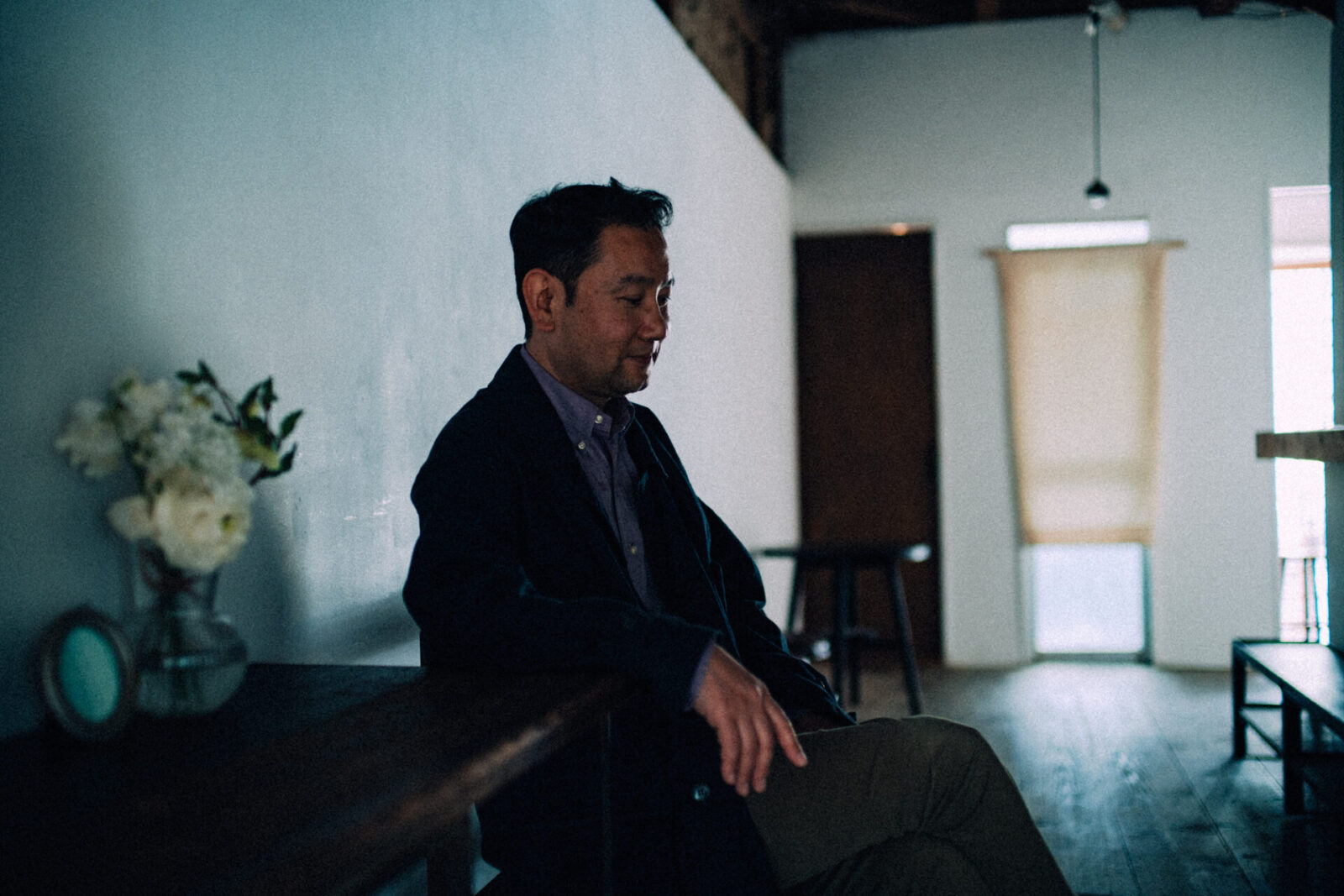
── It seems that the way we enjoy shikohin, such as coffee, is a reflection of the region that we reside in.
Shikohin like coffee is now being enjoyed all around the world, and each region has a different way of enjoying it and it plays different roles in their society. When you look at these differences, you begin to see the reality of the current culture of each region. It’s true that there are many differences between Ethiopia and Japan. However, I believe that their culture is not completely foreign to us and it helps us realize aspects of our own culture that we would otherwise not notice.
── What are some of the realizations that you have had?
One example is the custom of offering a prayer over coffee or khat before enjoying it together with others. It reminds me of how in Japan we used to make an offering of seasonal foods or gifts to the household Buddhist altar before we enjoyed them with others.
As we build on such analogies, we see that Japan and Ethiopia are in fact not so different. Although slightly different, we do similar things in different contexts and we require the same functions as a society.
People tend to think of cultural anthropology as the study of simple cultural theory, like how Japanese are one way and Ethiopians are another. However, this is not the case. It is problematic that we are living our lives by confining ourselves to the limitations of our own self images of how Japanese people should be or what Japanese people should do.
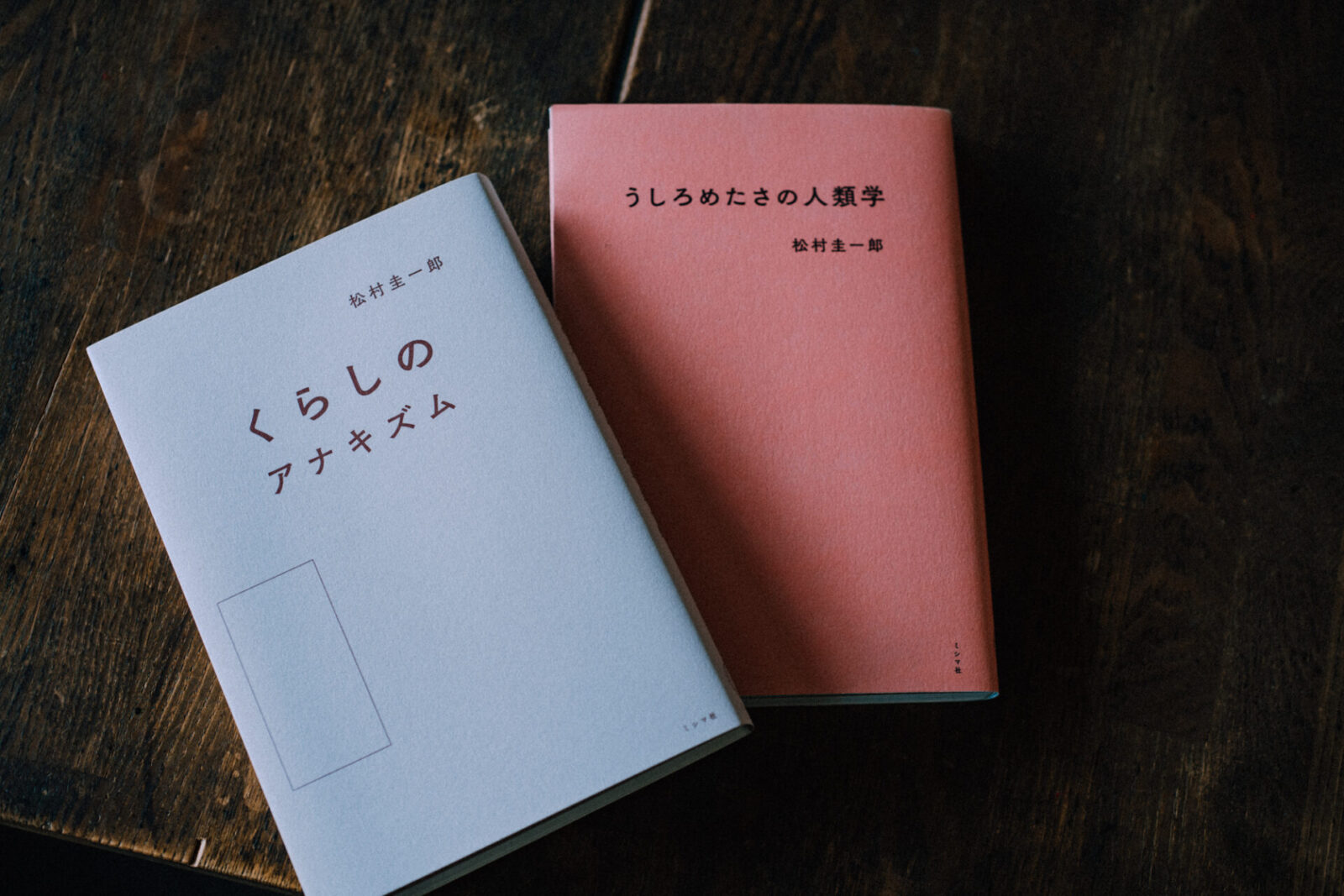
── If we look at things from the viewpoint of cultural anthropology, perhaps we can have a more flexible understanding of ourselves.
When I first stayed in Ethiopia for an extended period and got acclimated before returning to Japan, I found some things that I had taken for granted before felt very strange.Things like public buses leaving right on time, or attendants always bowing at people. I had only been in Ethiopia for one year, but I felt out of place in the “norm” of Japanese society. I discovered
that the human mind and body have the potential to change and adjust very quickly.
This is why I go back and forth from Japan and other countries. We should unravel our hardened self image by asking ourselves what has become the unconscious “norm” in our daily lives. That is what makes cultural anthropology so interesting.
Photo:Kaori Nishida
Translation:Sophia Swanson
Special Thanks:peni..ecole+cafe
Reporter for Business Insider Japan. Born in Shinjuku-ku, Tokyo. Taught world history as a high school teacher, worked for Huffngton Post Japan and BuzzFeed Japan before assuming current position. Interests incude economics, history, and culture. Covers a wide range of topics from VTuber to Rakugo and is interested in food culture from around the world.
Editor. Born and raised in Kagoshima, the birthplace of Japanese tea. Worked for Impress, Inc. and Huffington Post Japan and has been involved in the launch and management of media after becoming independent. Does editing, writing, and content planning/production.
